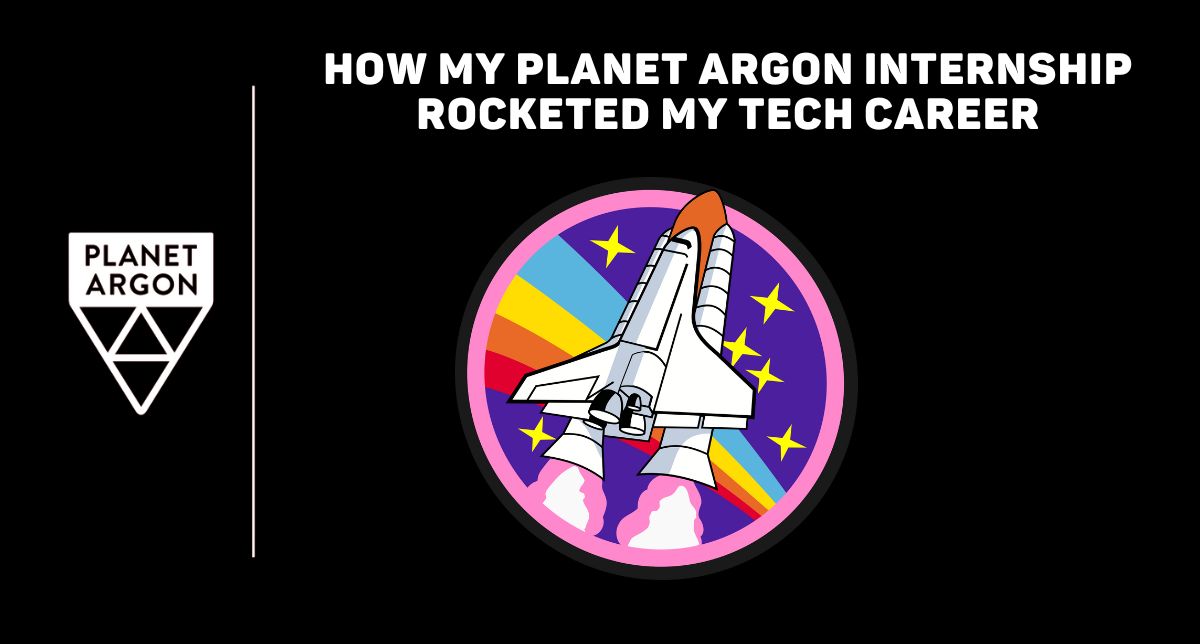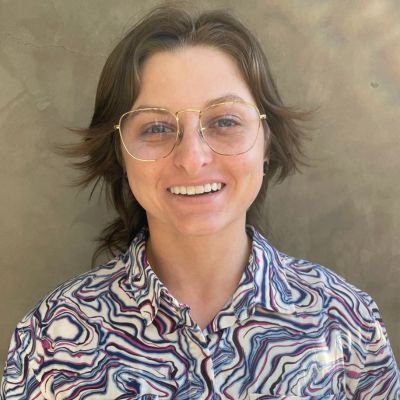How My Planet Argon Internship Rocketed My Tech Career
Reading time: ~ 3 minutes

Hi, I’m Emery!
Finding a career encompassing my passions and skill set has been arduous yet rewarding. I graduated from Indiana University with a Bachelor’s degree in Environmental and Sustainability Studies at the beginning of the 2020 COVID-19 lockdown. Despite the economic and political uncertainties of a global pandemic, I was fortunate enough to begin a career in environmental consulting immediately after graduation. I gained experience as a field-based environmental scientist, delineating wetlands throughout Indiana and Michigan and operating pollution-remediation systems across Southern California.

Before the Internship
After several years, I had reached a ceiling in my career and needed to decide my next step. I considered many different paths and eventually honed in on software engineering. With previous experience working with technologies like MatLab, R, and ArcGIS, I was confident in my ability to learn to code and begin impacting the tech industry quickly. After months of consideration, I left my full-time job to dive headfirst into an immersive coding bootcamp with LEARN Academy. I was excited to begin learning to code and exploring the intersection of sustainability and technology to find my niche.
As I neared the end of my bootcamp coursework, I was excited to join an experienced development team and begin working on real-world projects. Planet Argon’s Engineering Manager, Ben Parisot, interviewed me for an internship. I immediately knew Planet Argon would be a fantastic place to begin my career as a software engineer. Because Planet Argon is a Ruby on Rails consulting company, I was looking forward to the diversity of project work and client interests. I have worked for various consulting firms since 2019 and was intrigued to see how consulting works in the software development industry. I hoped to learn more about clients' concerns, how experienced developers articulate their ideas and solutions, and how developers juggle several projects at once.
Onboarding
The first week of my internship with Planet Argon was very busy with onboarding tasks and meeting the other developers on the team. I was first given access to many of the team’s tools. These included some I was familiar with, like GitHub, Slack, and Zoom, and several I had not used before, such as Jira, Tuple, and Harvest. Growing comfortable with these tools early on in the internship helped me orient myself within the development team and understand how each member communicates their work to others.
Next, I dove into environment setup to begin working on Planet Argon project work! I had never taken on the task of setting up my computer to be compatible with legacy codebases. A lot of troubleshooting was involved, and it was crucial to carefully follow instructions and read the details within the error messages I received. I had meet and greets with each developer on the team in my first few days with Planet Argon, and they were all open-ended for questions regarding environment setup complications. Also, pair programming with my intern mentor, Liz Pantalone, was incredibly helpful throughout this setup. They had seen many of the error messages before and would clearly explain what the error was saying and how I could begin trying to fix it. The idea of environment setup was daunting, and although it was complicated, it only took a few days to complete with the help of some more experienced developers and lots of documentation!
Working on my First Project
As I embarked on my first assignment to a client’s project, I almost immediately hit a roadblock due to an incompatibility with a Ruby gem called ElasticSearch. Most of the development team was working on M1 Macs, but this issue was specific to Intel Macs, which I used for the internship. I found the solution by digging into the GitHub repository for the gem. The resolution consisted of editing a couple of lines of code in my Z shell (zsh). I had not worked in the Z shell before this, so implementing the solution and seeing the incompatibility resolved autonomously was exciting and memorable. I documented my steps to overcome this issue in the project’s ReadMe.md so other developers onboarding to the project using an Intel Mac will have the remedy readily available! This experience showed me the value of open-source project contributions and the importance of detailed documentation.
Going Forward
At the end of my internship with Planet Argon, I have several key takeaways about the day-to-day as a software engineer at a Ruby on Rails consultancy. First, you will not be coding all day, every day, as I had previously thought. Sure, it’s a lot of coding, but it’s also a lot of troubleshooting errors via reading documentation and meeting with your teammates. Second, most developers are not building applications from scratch but rather updating existing codebases with new features, additional testing, and more modern tools. Lastly, the development team listens to and values junior developers' opinions. No one knows all there is to know about software engineering, so always speak up with a clarifying question or a new idea!
Planet Argon is a perfect place for a junior developer to intern with. It’s a wonderful stepping stone to a successful career in tech. Their emphasis on intern involvement is invaluable as you implement your ideas into live websites and interact with clients. Also, the nature of Planet Argon’s work is conducive to an impactful internship experience as they have diverse project work and unique questions they’re working to solve. Lastly, I am leaving my internship with an incredible network of software developers from all over the world.
The confidence instilled in me throughout my time with Planet Argon was crucial to landing my next position as a Programming/Scripting Specialist with Arcadis! I am very thankful for my time with Planet Argon, and I hope they continue to rocket junior developers to a successful career in tech.